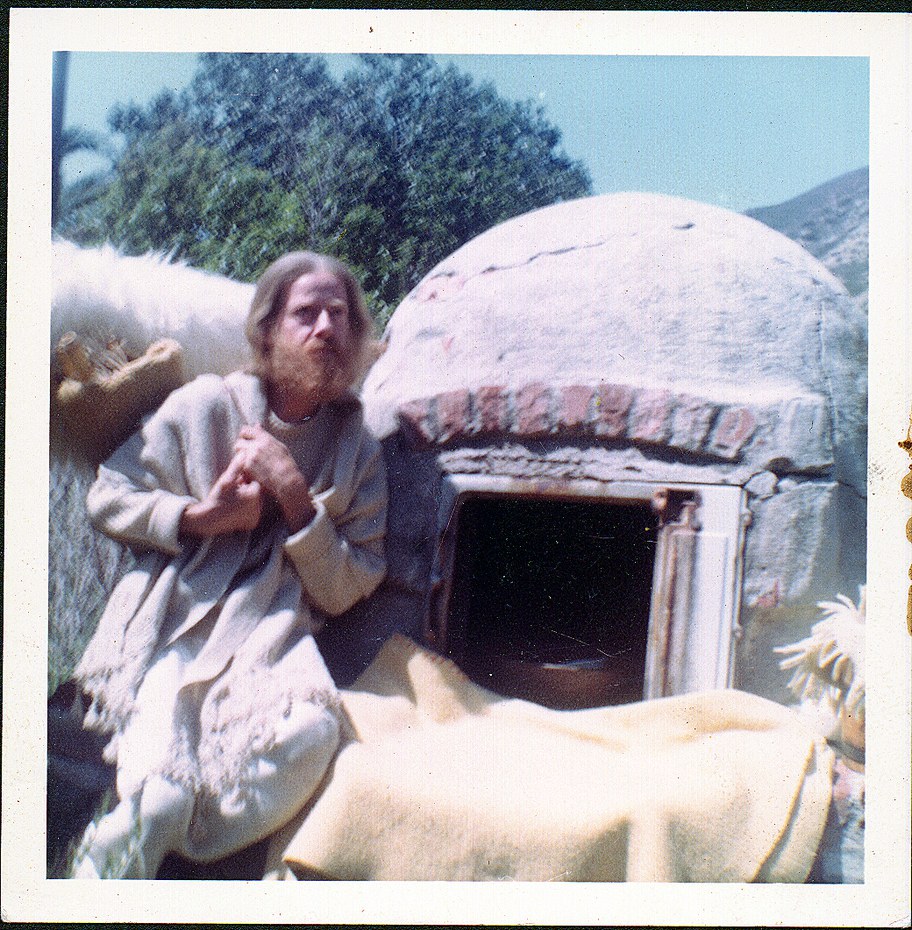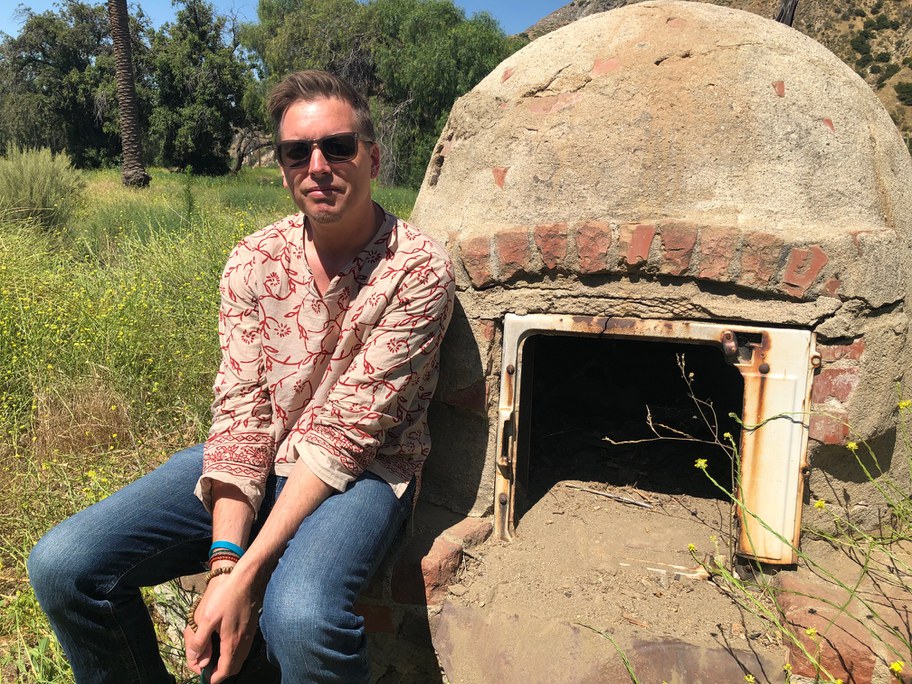The song “Nature Boy” was a number one hit for Nat King Cole in 1948 and sold 1 million copies that year. Since then, the song has been performed and recorded by hundreds of artists across the jazz and other genres, including Frank Sinatra, John Coltrane, Miles Davis, Ella Fitzgerald, Sarah Vaughan, James Brown, David Bowie, and more.
Eden Ahbez composed the song about himself. During and after the Great Depression, he preferred to live in nature, even as he began to earn significant royalties on his music.
Brian Chidester, who is working on a documentary called “As the Wind: the Enchanted Life of Eden Ahbez,” says Ahbez was part of a group called the California Nature Boys in the 1930s and 1940s. “They were interested in Eastern mysticism. They followed some gurus like [Jidda] Krishnamurti and [Paramahansa] Yogananda, who was lecturing in Southern California at the time. … They really were the forerunners of the hippies. “
When he appeared on the television show “We the People” in 1948, Ahbez told host Dwight Weist, “All the money in the world will not change the way I live. Because all the money in the world couldn’t give me the things that I already have. Anna and I have learned that nature and a simple life bring you peace and happiness. We sleep on the floor in sleeping bags in the California mountains and deserts. “
Anna was Ahbez’s wife. They married in 1946 and their son Zoma was born in October 1948, a few months after “Nature Boy” became a huge hit. In the 1950s they camped in Big Tujunga Canyon and other areas and sometimes lived in ashrams in the Glendale area. They lived almost exclusively outdoors.
Eden Ahbez is seated outdoors in the San Fernando Valley, circa 1963. This photograph was taken by record producer Bob Bertram, who worked extensively with Ahbez in the 1950s and 1960s. Photo courtesy Brian Chidester / Full Moon Films.

In Big Tujunga Canyon, Eden Ahbez sits next to an outdoor oven he lived in the wild in the 1950s and 1960s to prepare food. Photo courtesy Joe Romersa / Shadowbox Studio.
In 1960 Anna was unfortunately diagnosed with cancer. She died a few years later at the age of 44. Chidester says there is some evidence that Zoma got involved with a bad crowd and drugs. He died of an overdose in 1969 at the age of 21.
Ahbez wrote music for many artists, but he also recorded an album of his own music called “Eden’s Island” which was released in 1960. Chidester says the record flopped and only sold about 100 copies. But the historian calls the album “an incredible musical statement, so cohesive and so ahead of its time”. And he wondered if the composer hadn’t written more music to go with it.

Eden Ahbez, seen at Lake Shrine Ashram in Pacific Palisades in 1960. The picture is an excerpt from the session that produced the cover photo for the artist’s only solo album “Eden’s Island”. Photo courtesy Joe Romersa / Shadowbox Studio.
In the Library of Congress, Chidester discovered sheet music for hundreds of Ahbez compositions that had never seen the light of day. About 22 of these were written in the years immediately following the release of Eden’s Island.
With the help of the Swedish band Ìxtahuele, Chidester produced a new album, “Dharmaland”, with 12 of these songs. It came out in June.
“We also had access to Abi’s hand-made drums, we got access to one of his hand-carved bamboo flutes at the last minute. We had nine of his friends and former collaborators on the album. … I’m so proud of it. ”

Brian Chidester produced Dharmaland and co-directed As the Wind: The Enchanted Life of Eden Ahbez. It stands next to the Eden Ahbez outdoor stove. The furnace still exists in Big Tujunga Canyon today. Photo captured and contributed by Jarad Coats.
One of the former employees was Joe Romersa. He worked with Ahbez late in his life when he was over 80. He says it might be difficult to contact the composer since he didn’t have a unified home, and that was in the 1980s before the cell phone. Romersa says Ahbez called when he was going to the studio. And the engineer kept some of these voicemails because they are “nice to hear”.
Ahbez said on one of the voicemails, “The first thing I would say to the youth of America is… the earth is my altar. The sky is my dome. The mind is my garden. And the heart is my home. And I’m always at home. Yay. I’m always with Ohm. “
Romersa found it an emotional experience to construct the new album “Dharmaland” years after the death of his old friend and colleague. He sang on one of the album’s songs, “Fire of the Soul,” which Chidester describes as the album’s highlight.


Comments are closed.